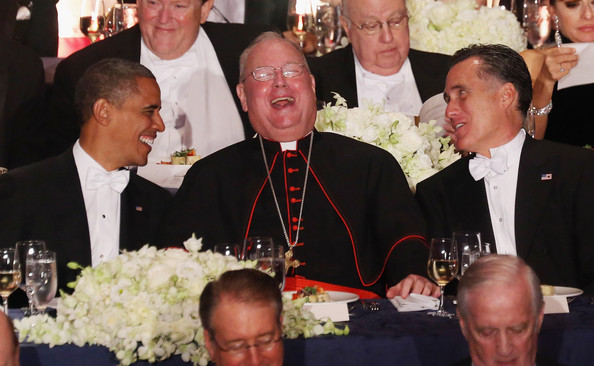In the New York Times, Gary Gutting boils down the choice:
We can, therefore, following Romney, see this election as a choice between the status quo and fundamental change. But the status quo is not, as Romney suggests, merely the policies of the Obama administration. A vote for Obama endorses what has been the governing structure of our society since the New Deal: a free-market system balanced with government regulations, tax-funded social programs and legislative and judicial guarantees of civil rights — all to protect citizens from the excesses of the private sphere.
The current Republican Party is committed to replacing this structure with one that seriously reduces the role of government. The idea is to rely primarily on the private sphere to regulate itself and to solve social problems through increased production and wealth. Although a President Romney might resist his party’s base, there is a good chance that, willingly or not, he would mostly follow the official party commitments. Therefore, a vote for Romney may well be a vote for a major change in the longstanding role of government in our society. This is the new American revolution urged by the Tea Party.
Personally, I’m not totally on board with the Obama side, but see the Romney side as ridiculous on the economy, defense, and healthcare/social programs. Romney himself strikes me as a weasel, that is, as completely untrustworthy. So, I’m voting for Obama this time. I think the nation has and can get better candidates for the office.
Gutting’s summary of the current divide as stemming from the philosophical underpinnings of the New Deal works for me. However, he neglects to mention anything of post WWII foreign policy. Notwithstanding the large areas of agreement between Obama and Romney in the last debate, the two American parties represent divergent views of the relationship of the US and the world.

